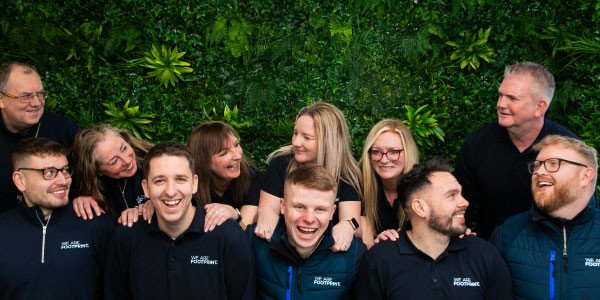Temporary workers are a vital part of construction’s flexible workforce. They bring versatility, expertise, and responsiveness to fast-changing project demands. But supporting them effectively on-site isn’t something that happens by chance - it takes planning, consistency, and a genuine commitment to treating every worker with care and respect.
Preparation is key. Before any temporary team member steps foot on site, they should be given clear information about the project, their role, and the safety procedures in place. A structured induction process ensures they know where to go, who to report to, what equipment they need, and how to access support. By integrating temporary staff into the same safety briefings, PPE policies, and communication channels as permanent workers, sites can prevent misunderstandings and help people feel more confident and capable from day one.
Welfare facilities are standard provision and rightly so. All workers, regardless of contract length, should have access to clean rest areas, proper toilets, handwashing facilities, and shelter from the weather. These spaces are more than basic amenities - they’re also a reflection of how much a workforce is valued. Making sure these facilities are well-maintained and easy to access sends a powerful message that everyone on site matters.
Creating an inclusive site culture is also crucial. Temporary workers are often joining unfamiliar environments with little time to build rapport. It’s important they are welcomed properly and made to feel part of the group right from the start, through team briefings, check-ins with supervisors, and everyday interactions that foster trust and camaraderie. A supportive atmosphere helps reduce the sense of being on the outside and builds loyalty, even among short-term staff.
Construction is physically and mentally demanding. For temporary workers, the added uncertainty of short-term contracts, inconsistent hours, or financial pressure can add to the strain. That’s why access to mental health support is essential. Whether it’s through trained mental health first aiders, regular wellbeing conversations, or simply making it okay to speak up, a culture of openness can make all the difference. Sites that plan workloads responsibly, communicate clearly, and pay on time go a long way in reducing avoidable stress.
But without deliberate planning, these priorities can easily be overlooked so they need to be built into project planning and leadership thinking from the outset. When temporary labour is brought in, site managers should already have systems in place for integrating them safely and considerately. Wellbeing should be a fundamental part of site operations rather than an optional extra.
At We Are Footprint, we specialise in providing reliable, vetted, temporary trades and labour staff to construction projects spanning different sectors and sizes, and partnering with clients to ensure temporary workers arrive prepared, supported, and ready to contribute. We believe that good labour supply isn’t just about filling a role it’s about doing right by the people who make the work happen.
We know that the strength of a construction project lies in its people, and that includes every worker on site, no matter how long they’re there.



